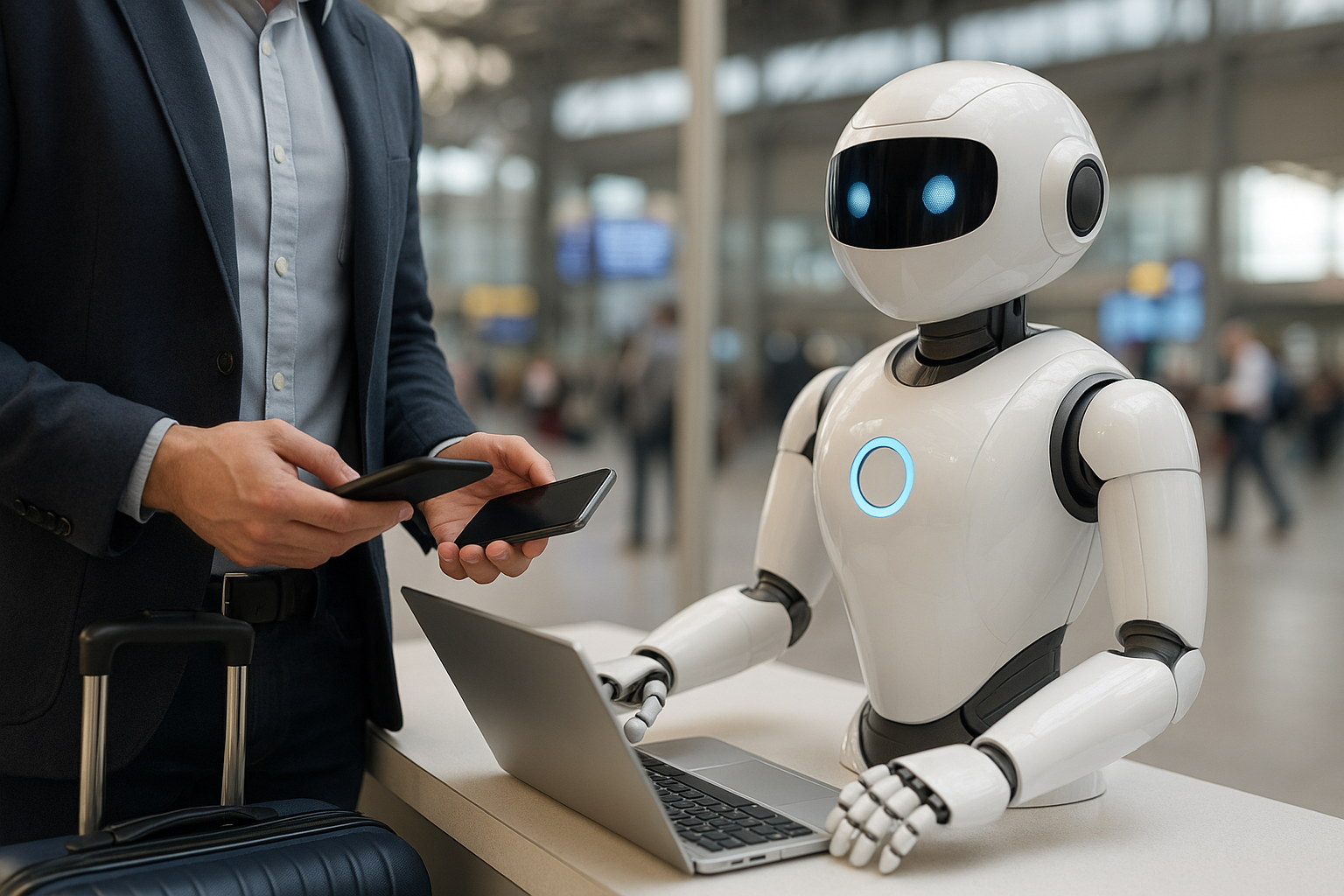How AI is transforming tourism industry?
According to the study, the most widely adopted AI technologies in tourism are Natural Language Processing (NLP) and deep learning models, particularly those based on neural networks such as Convolutional Neural Networks (CNNs) and Long Short-Term Memory (LSTM) systems. These tools are typically deployed in customer-facing applications like chatbots, recommendation engines, virtual assistants, and smart booking systems.

Artificial Intelligence (AI) has quietly but decisively embedded itself in the tourism industry, reshaping customer experiences, operational logistics, and business strategies. A new study, titled "Artificial Intelligence in the Tourism Business: A Systematic Review" and published in Frontiers in Artificial Intelligence, uncovers the depth of this transformation.
The systematic review investigates how AI is currently being used in tourism, identifies the most prevalent technologies, evaluates their benefits, and examines the barriers to widespread adoption. Based on 112 peer-reviewed studies sourced using PRISMA methodology, the paper offers a rare global snapshot of AI deployment across the tourism value chain. The review confirms AI's pivotal role in modernizing a traditionally human-centered industry, while also highlighting technological, ethical, and economic concerns that could slow its expansion.
What AI technologies are shaping the tourism industry?
According to the study, the most widely adopted AI technologies in tourism are Natural Language Processing (NLP) and deep learning models, particularly those based on neural networks such as Convolutional Neural Networks (CNNs) and Long Short-Term Memory (LSTM) systems. These tools are typically deployed in customer-facing applications like chatbots, recommendation engines, virtual assistants, and smart booking systems.
NLP is extensively used in chatbots and virtual agents that provide automated customer service, handle multilingual queries, and offer personalized suggestions. CNNs and LSTMs are frequently applied in image recognition and predictive analytics tasks, such as classifying travel images or anticipating customer preferences based on prior behavior.
The research shows that AI has not only optimized internal business functions but also enhanced consumer experiences. By analyzing large volumes of structured and unstructured data, AI models can generate dynamic pricing, predict seasonal travel patterns, manage resources efficiently, and deliver highly tailored marketing content. Companies also use AI to automate decision-making processes in revenue management, fraud detection, and itinerary optimization.
This technological integration enables businesses to scale services without increasing operational costs, especially in areas with labor shortages or fluctuating demand. AI also supports 24/7 availability, which is particularly valuable for international tourism markets operating across time zones.
What benefits has AI brought to the tourism ecosystem?
AI-driven solutions have significantly increased efficiency, personalization, and customer engagement in the tourism industry. Chatbots, for example, reduce wait times and provide consistent service quality, while machine learning algorithms enable businesses to understand customer preferences in real time. This allows for hyper-personalized offers and curated travel experiences that boost customer satisfaction and repeat business.
In the operations domain, AI contributes to optimized logistics, predictive maintenance of infrastructure, smart energy usage in hotels, and real-time translation for multilingual environments. Tour operators and platforms benefit from predictive demand forecasting, intelligent resource allocation, and streamlined communication with clients and service providers.
The study also identifies significant benefits in strategic decision-making. AI empowers tourism businesses to interpret complex consumer behavior data, assess competitor strategies, and test marketing campaigns through automated A/B simulations. This results in faster, more informed business responses and improved agility in crisis scenarios.
Moreover, AI has helped democratize access to tourism planning. Through AI-powered mobile apps and self-service platforms, even small businesses and remote destinations can now reach global audiences with little financial investment. These tools level the competitive playing field by reducing dependence on large-scale infrastructure or marketing budgets.
What challenges must be overcome for widespread AI adoption?
The researchers also acknowledge several critical challenges that threaten to limit the broader adoption of AI across the tourism sector. Chief among them is the high cost of implementation. AI systems demand significant investments in hardware, software, and specialized human capital. For small and medium-sized enterprises (SMEs), these barriers remain formidable.
Another major concern is the ethical and legal ambiguity surrounding data use. Many AI applications in tourism rely on vast amounts of personal data, including travel history, payment behavior, and even biometric identifiers. Without robust data protection protocols and transparent consent frameworks, these systems risk breaching privacy regulations and undermining user trust.
The review further notes a lack of technical infrastructure in developing countries, which restricts the integration of advanced AI tools in regions where tourism could otherwise be a key driver of economic growth. Connectivity issues, insufficient AI literacy, and lack of standardized platforms also hinder progress.
Cultural resistance to automation is another impediment. In an industry historically centered on human interaction, the shift to digital interfaces and algorithm-driven decisions may alienate both customers and service providers. Moreover, the paper points out that AI tools often fail to adequately handle the nuance, emotion, and spontaneity that characterize many aspects of travel and hospitality.
Finally, the authors warn of the risk of algorithmic bias. Poorly trained AI models may reinforce stereotypes or exclude marginalized communities from targeted marketing or decision-making algorithms. Without inclusive design principles, these systems may perpetuate inequality instead of promoting accessibility.
- READ MORE ON:
- AI in tourism
- artificial intelligence in travel industry
- AI tourism technology
- AI-powered travel services
- how AI is transforming the tourism industry
- artificial intelligence trends in travel and tourism
- AI-based personalization in travel planning
- future of artificial intelligence in global tourism
- FIRST PUBLISHED IN:
- Devdiscourse










